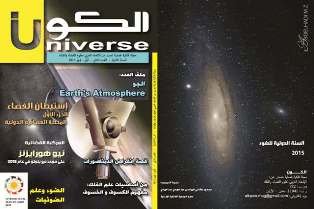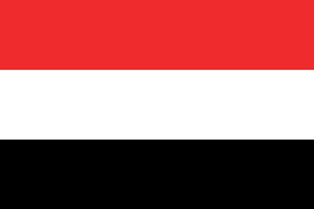Astronomy in Jordan
Astronomical Societies:
The Jordanian Astronomical Society – JAS
 |
Founded Jordanian Astronomical Society (Society of amateur astronomers previously) in Amman in 1987, and is currently based in temporary Haya Cultural Center, and the association has about 50 active members, decided on 06.07.1994 the General Assembly in its extraordinary change the name of the Assembly “Association of amateur Astronomy” to “JAS”, and will be based in Amman and may open branches inside the Hashemite Kingdom of Jordan.
Unions:
The Arab Union For Astronomy and Space Sciences
 |
President of AUASS1) BACKGROUND AND INFORMATION ON HOST ORGANIZATION A. DESCRIPTION OF HOSTING ORGANIZATION AND PARTNERS (see also addendum) Arab Union for Astronomy and Space Sciences (AUASS) Administrative Board:
Honorary President of AUASS His Highness Sheikh Dr. Sultan Bin Mohammed Al Qasimi, Member of the Supreme Council, Ruler of Sharjah, and President of the University of Sharjah, Sharjah – United Arab Emirates.
Professor Hamid M.K. Al Naimiy, Professor of Astrophysics and Chancellor of the University
of Sharjah, Sharjah – United Arab Emirates.
General Secretary of AUASS
Dr. Awni Al‐Khasawneh, Director of the Royal Jordanian Geographic Center (RJGC), Chairman of Regional Centre for Space Sciences and Education (RCSSE) for Western Asia, affiliated with the United Nations (RCSSE) in Amman – Jordan.
Founding of AUASS
The Arab Union for Astronomy and Space Science (AUASS) was founded in 1998 whereupon it established its main headquarters in Amman – Jordan. It is a non‐profit organization and is considered a specialized authority in the Arab world in the fields of space, astronomy and the atmosphere and all that is related to these specializations in the basic and applied sciences. AUASS is a member of the Arab League Council of Arab Economic Unity (CAEU).
Mission
AUASS seeks to play an active role in raising the profile of accomplished Arab and Muslim scientists in the fields of astronomy and space sciences and promoting national, regional and international interest in these fields through education, research, and space exploration to benefit human progress and development.
Vision
AUASS endeavors to become a globally renowned organization that unites individuals, institutions and organizations concerned with astronomy and space sciences in order to make a lasting contribution to these fields and to ensure progress and development in the Arab world.
Objectives of AUASS
1. Endeavoring to raise the profile of astronomy and space sciences so that these fields may play a major role in the scientific and technological progress and development of Arab society.
2. Preserving the Arab/Islamic scientific heritage and raising its profile in the advancement of human civilization.
3. Studying scientific issues of common interest among Arab countries and exchanging information and experience related to various basic and applied scientific fields in astronomy and space sciences.
4. Promoting interest in astronomy and space sciences in Arabic‐speaking countries; supporting scientific institutions and associations in the Arab world; and helping astronomers and Arab specialists in astronomy and space sciences form scientific institutions and associations in Arabic‐speaking countries that have not yet established such authorities or associations.
5. Endeavoring to raise the level of the scientific and technical performance of specialists and those interested in the fields of astronomy and space sciences in the Arab world and providing all the necessary means available to realize these aims.
6. Seeking to identify the beginning of the lunar months by scientific means and using observational methods to substantiate findings.
7. Working to standardize scientific terms in the fields of astronomy and space sciences in the Arab world and promoting research, publications, and the translation of scientific material into and out of the Arabic language.
8. Providing consultations to institutions, authorities and individuals concerned with astronomy and space sciences.
9. Establishing an Arab space research agency that caters to astronomy and space science research needs, technical advancement and space exploration in the Arab world similar to that of other international space agencies such as the European
Space Agency (ESA) and the National Aeronautics and Space Administration (NASA). This has been a topic of discussion with the Arab League.
B. HISTORY AND EXISTING NETWORKS IN THE REGION (see also addendum)
Membership in AUASS currently exceeds 500 members from various astronomy and
space sciences sectors and specializations, including scholars, researchers,
astronomers, engineers, and others interested in astronomy and the space sciences.
Current members include:
1. Founding astronomy and space science institutions and associations.
2. New space science institutions and associations.
3. Novice astronomers and space science amateurs living in Arabic‐speaking countries
that have not yet established astronomy or space science institutions or
associations.
4. Scientific institutions such as institutes, universities and centers that offer
astronomy and space science programs in the Arab world.
5. Any party that the AUASS Higher Council approves in accordance within its clear
and agreed‐upon framework of regulations.
C. AUASS ACTIVITIES:
1. Convening and organizing a series conferences, symposia and workshops: Over 30
such forums have been convened since the establishment of AUASS in 1998; eleven
of these were international conferences in astronomy and space sciences and five
were specialized History of Astronomy and Islamic astronomy conventions that
addressed astronomy applications related to Sharia law and the scientific miracles
of the universe as found in the Holy Quran and Sunnah. All conferences and
workshops met with tremendous international and regional success. Participants at
the most recent international conference included over 400 scientists, researchers,
professors, and graduate students from across 35 countries and representatives
from over 200 scientific and cultural institutions.
2. Publishing Al Kawn Journal, considered the first refereed astronomy and space
sciences journal of its kind in the region. The journal is an Arabic quarterly, which
seeks to disseminate culture and awareness of the space sciences, astronomy and
related fields.
3. Establishing a comprehensive database containing information about Arab and
Islamic institutions concerned with the fields of astronomy and space sciences,
inclusive of their activities, members and organizational structures. The database
also includes information about observatories, large and small telescope domes
(constructed or to be constructed in the future), and the names and addresses of
scientists, researchers and others interested in astronomy and space science topics.
4. Establishing astronomy and space science societies in Arabic‐speaking countries
and establishing AUASS branches in some Arabic‐speaking countries.
5. Contributing to building astronomy observatories and telescope domes in the Arab
world to serve the fields of astronomy and space sciences in the region and to
provide scientific and technical consultations in these fields.
6. Contributing to educational curriculum at all levels by enriching it with vital
subjects related to astronomy and the space sciences.
Royal Jordanian Geographic Centre
 |
Based on the country’s need for a national institution, which will be responsible for conducting all kinds of surveying (terrestrial, air and space) for the purposes of the preparation of all types of maps in using local and international standards to meet the needs of the Kingdom, and to provide services in these areas at the local and regional levels, came the foundation of the Royal Jordanian Geographic Center (RJGC) in the second half of 1975, as the first scientific institution specialized of its kind in the region.
In order that the Royal Jordanian Geographic Centre could be able to implement the entrusted tasks and duties, it was necessary to provide technical competencies specialized qualified and trained personals, through the help of advanced countries in this area, like France by sending a large number of outstanding students in the Secondary General Certificate to study at the National French geographic Institute (IGN) to graduate as engineers and technicians in the surveying science, and in the meantime a specialized training center was founded at the RJGC premises to grant a diploma of three Academic years in the disciplines of surveying, photogrammetry and cartography, and mapping reproduction (photography & printings), where the Training Centre was converted later into a university community college and the college was effectively contributed in providing RJGC, public and private sectors in Jordan and the Arab Gulf with their needs of specialized technicians qualified and trained in surveying, photogrammetry & cartography, remote sensing and geographic information systems.
The Royal Jordanian Geographic Centre is keen to modernize and update its technical abilities (hardware, software, equipments) and develop its technical skills to be able to meet the needs and requirements of the development taking place in our country , and to be a Centre of excellence at regional and international levels in the fields of surveying sciences, both in terms of production, training, conducting researches and related studies, particularly the applied ones, through the rehabilitation of the employees and acquiring the latest technology in geospatial sciences to keep RJGC always in high level of readiness, efficiency and professionalism.
The Regional Center for Space Science and Technology Education for Western Asia
 |
⁃ Vision:
To utilize the capabilities of space science and technology for the benefits of humanity, national socio-technological development through education, advanced researches and training.
– Goals:
1. Strengthen the capacity of member states in the field of space sciences and technology, researches and application programs, grant Master degree in Remote Sensing, GIS, Satellite Communications, Space and Atmospheric Sciences and Satellite Meteorology and Climate Change, in addition to short, mid, long-term courses which will last 3-9 months.
2. Providing services to a dozen of countries in the related fields.
3. Offering a scientific environment for Western Asia region so students and researchers can contribute in the development of their countries in the field of space sciences and technology.
4. Scientists and project personnel in the Developing the skills and knowledge of university educators, environmental research sign, development and application of remote sensing and related technologies for subsequent application in national and regional development and environment management programs including bio-diversity protection.
5. Assisting educators to develop environment and atmospheric sciences curricula that they can use to advance the knowledge of their students in their respective institutions.
6. Developing skills for satellite communications including those associated with rural development, disaster mitigation, and network/linkage of the region’s professionals and scientists, Government establishments and industries in order to facilitate the exchange of new ideas, data and experiences.
7. Enhancing regional and international cooperation in space science , technology and applications programs.
8. Assisting in disseminating the value of space sciences and technology to the public in improving their daily quality of life.
Aqaba Astronomy Association
 |
We are a group of acadimic people who beleive in astronomy as a part of our relegion and as a great heritage from our relatives. Who would like to let this science spread and spread until get glowing in our countries again
 |
Our first project is:
Sky gate is considered a scientific, cultural, and tourism development project that will greatly enhance your Wadi Rum experience.
This project provid a great promise to promoting opportunities for the local community, Jordanian and foreign tourists
Sky gate telescope Observatory gives the visitors and local residents the chance to experience the local treasures in a unique into heavens ……
The observatory rum sky gate being the first public telescope of its kind in middle east this observatory is designed not only to educate, scientists, students and tourists on astronomy but also to help alleviate poverty and stimulate tourism in the region by attracting international and local visitors to the area and now its open for star gazing and meditation in the desert
To contact us :
Facebook page: Rum Sky Gate
Mobile: +962 7 95482570
e-mail: info_asa@yahoo.com
Institute of astronomy and Space Sciences Al al-Bayt University (Maragha Observatory):
 |
The Institute of Astronomy & Space Science (IASS) was established in 1994 at Al al-Bayt University (AABU) with the aim of preparing local expertise in the various branches of astronomy and space sciences, in order to be able to handle technical developments and perform scientific research in these fields.
 AW-ROAD Just another WordPress site
AW-ROAD Just another WordPress site



